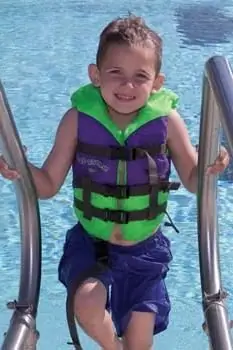2026 Author: Priscilla Miln | miln@babymagazinclub.com. Last modified: 2025-01-22 17:55:20
Today much attention is paid to the upbringing and development of young children. There are a huge number of methods in this area, and often we do not know where to start, which option to choose, which opinion to listen to. But modern psychologists are unanimous in one thing - it is impossible to overestimate the role of play in a child's life. It occupies a key place at the stage of formation and development of the personality of the baby, his self-awareness and socialization.
There are a lot of materials on this issue, especially since the game for children in real life is somewhat different from those of the older generation. This is due to the development of scientific research on this topic, as well as due to the development of new technologies and their availability to the population. Let's try to highlight the key positions on this issue and consider each of them in more detail.
Why is it important to play?
The importance of play in a child's life is very great. It is through her that the baby learns the world,learns to interact with him, contacts with his relatives, and later with peers and other adults, adapts to working in a team, shows imagination and ingenuity, develops logic, activates the thought process.
“Learning by playing” is the main principle that parents should adopt. It often seems to us that during the game we forget that the child also needs to be given skills that will help him in the future in kindergarten, school, and adulthood. It is important to understand here that the baby receives everything he needs just in a game format. The game as a form of organizing the life and activities of children should be considered comprehensively. So, playing, baby:
- develops fine motor skills (playing with small objects, drawing, modeling, puzzles), which accelerates the development of speech skills;
- develops fantasy (involving parents, toys, applying to oneself any role from real life or a book read);
- adapts to different social situations (shop, school, clinic);
- develops physically (outdoor ball games, playground games);
- eliminates stress (sickness/laying dolls, active games).
So, the task of adults is to properly organize the play space, give the child the opportunity to show imagination, and direct his activity in the right direction, explaining through the game the basic norms and rules of behavior. And, of course, to participate in the kid's undertakings, because this is how he feels himself a part of society and the family, feels himself needed, gets what he needscommunication.
When should I start playing with my baby?
The question that almost all parents ask. So, you can and should play from birth, it is only important to adapt the activity to the age of the child, gradually complicating the activities already familiar to him. "How to do this, - you ask, - given that newborn children can't do anything? And it seems to be worth waiting until they grow up and get minimal skills."

Play should be a must in the life of a young child. The thing is that the kids get the basic skills by communicating with us. First, the cub looks at how parents manipulate various objects: rattles, toys, household items (sponges, coils, wooden spatulas). And then the child himself begins to hold and move the same objects, repeating after us. He repeats movements, gestures, facial expressions. Why not a game?
With older kids, there are much more options for playing. By the year they are already ready to assemble and disassemble pyramids, sorters, stay alone for a short amount of time and occupy themselves, they have their own preferences. The games of children of the third year of life become even more diverse: the child shows imagination, involves toys in a played out situation, is able to occupy himself while his mother is passionate about household chores.
Recall that play plays a key role in a child's life. It is important to use the game format in communicating with the baby as early and as often as possible, because this is how he learns the world.
What types of games are there?
Repeat that the gamein the life of a child is very important, and it is necessary to use different types of games for its comprehensive development. There is a generally accepted classification of games with children. It is convenient to represent it in the form of the following scheme:

Let's go through it one by one and give examples.
Experimental game - a game based on experiments. Such games will be of interest to children of the middle and senior preschool groups (that is, as a game for children of the third year of life and older), since they require concentration and perseverance. The experiment can be conditionally divided into 3 stages:
- the child is watching the experiment: it is necessary to interest the baby, do not start with a boring theory, show "class", and he will be ready to listen to you;
- the child is preparing an experiment together with an adult: it is very important at this stage to actively help the child, let him understand the principle of action and gain courage for further independent activity;
- the child experiments on his own: adult control is also necessary at this stage, but here you can give freedom of action to the young scientist and get involved in the process only at the request of him.
Such types of games in the life of a preschool child develop a creative approach, interest in science, the ability to collect and process information, craving for cognitive activity. During the experiments, do not forget to invite the baby to first build a hypothesis (guess what should come out of the experience), then confirm or refute it empirically anddraw conclusions (what worked, what didn’t, why). This will teach him a consistent presentation of thoughts, structuring and explaining what he saw, and, of course, this will definitely come in handy in later life.
As an example of such games, sets "Young chemist", "Entertaining biology" and others are perfect. They are sold in any children's store, and their choice is huge. You can organize an experiment at home, for example, by growing an onion from an onion. Get creative. Experimenting will appeal not only to kids, but also to their parents.
Games with rules - we are talking about games according to certain established rules, which are often formed historically (teed, hide and seek). Depending on the situation and desire, they can be supplemented or come up with new conditions with the kids.
Such games in the life of a young child develop communication skills, because they are often team-based. We are talking about confrontation and rivalry, as well as well-coordinated teamwork to achieve the best overall result. This is very important for the development and socialization of children.
Such games are divided into the following subtypes:
- Didactic - games in the life of a child, aimed at developing perseverance, attention and following the rules. As a rule, they are equipped with certain equipment (cards, the game "Try to catch up"), but the conditions are most often severely limited, there is also a system of fines and rewards, which actively teaches the child to follow certain limits.
- Mobile - the basis of the game is physical activity. It is more convenient to carry out such classes in the fresh air or in a specially equipped room (sports corner at home or in kindergarten, for example). Preschool children need to move a lot, this is inherent in nature. We just need to direct the activity in the right direction and ensure, if possible, the safety of the child. It is also worth noting here that we are not talking about sports sections: sport is important and necessary, but it is aimed at honing the necessary skills only for this type. It is important for us to develop the child harmoniously and comprehensively, which means that bast shoes or hide and seek will be much more effective than, say, basketball. It is important to instill in a child a love for such activities, especially in the era of computer games, because, as you know, it is extremely difficult to get rid of an established habit. So let the habits be useful.
Creative games are games that are entirely aimed at developing creative thinking and fantasy. They are quite difficult for an adult, because it is impossible to predict in advance what and how the child will do, which means that it will not work to prepare.
They are divided into the following subtypes:
- Role-playing games in a child's life - playing real situations from life or stories from favorite books and cartoons. Since such activities involve the distribution of roles and following a certain outline of the plot, they allow the child to try out various social roles (doctor, mother, villain from a fairy tale), and also clearly show what is good and what is bad, help to better and faster learn those or other rules. Among other things, babyactively develops speech and memory.
- Building and constructive - various constructors, cubes and other materials that allow a child to show their imagination and realize it with the help of certain tools. The game is not limited to one set of items, you can connect several of them, this will make the process even more interesting and diverse.
- Theatrical - in fact, this is the same role-playing game in the life of a child, but providing for the presence of spectators (these can be parents or, for example, peers). Among other things, theatrical performances allow the baby to overcome embarrassment, teach communication with the public, the ability to speak clearly and with expression.
Fun games are comic, relaxing activities. These can be various nursery rhymes, finger games, repetition games (we repeat actions after the leader) or, for example, tickling. The role of such a game in a child's life is that it allows both adults and children to relax and relieve stress.
It is necessary to include in communication with the child, if possible, all types of activities so that his personality can develop harmoniously. In this case, he will grow mobile, well-mannered, diligent, with the skills of working in a team and speaking in public. All this one way or another will be useful to him both during the period of school and in adulthood. First of all, parents should show an example that the kid should be guided by, and any child can already accept, master and apply the idea he sees to himself.
Who and how do children play?
It is impossible to answer this question unambiguously. The choice of the child "with whom to play" depends on the level of his development, character, preferences, the actual existing practice of playing in his life.
So, for example, those who are constantly in the field of view of their parents and do not have the opportunity to study on their own, at any age will look back at what their mother will say and what idea she will give him. Toddlers who already go to kindergarten willingly play with their peers on the street, and at home they organize games not only with their parents, but also with toys.
Of course, as children grow older, the circle of objects involved in their game increases. So, a newborn is ready to watch how mom and dad take him, but by the year the child on the street is already interested in his peers and those who are older. Toddlers of the third year of life actively accept both adults and children and their toys into the game.
Our task is to give freedom of choice to the little man. Of course, you can’t always refuse help if the child asks, but gently direct, offer him to dream up on his own in our power. Of course, parents should be there, because we are the main support and support of our children. Just don't control their every move. And, no matter how difficult it may seem at first, over time it will become clear that freedom of choice is an important stage in the development of our children. It is necessary to perceive the game as a form of organizing the life of children, and not just as entertainment.
How to organize a game and how to help a child?
Properly organizing the play space is very important, as the game occupies a leading place in lifechild. In this matter, you should be guided by several rules:
- Safety first. The children's room should be spacious and light, as well as sufficiently humid (30-60% of air humidity is considered the norm) and not hot (leading pediatricians advise 18-22 ° C). It is necessary to choose comfortable interior items so that the child has access to toys, but they all have their place. In addition, this will teach the baby to be careful and responsible, because everything in the room will need to be put in its place, say, before going to bed.
- Functionality. Furniture must be selected as comfortable as possible and meet your requirements, you should not clutter up the space. It will also be great if such interior items as a table and chair will "grow" with the child, which will allow parents to significantly save the budget, since modern manufacturers offer many such options.
- Accessibility. Shelves with books, boxes with toys - everything should be in the public domain for the child. This is how the baby will be able to choose what and how to play with.

It is also worth noting that if there are a large number of toys, you can divide them into groups (dolls, soft toys, cars, musical instruments) and change them to your child, for example, once a week. So the game in the life of a child will become even more diverse.
Where can I get ideas for games?
Today there are many resources on play and learning for preschool and primary school children. It can be the Internet: various sites, blogs, articles,videos, as well as printed publications on this topic. Do not forget about your own imagination: we were all once children, it is only important to relax and devote time to the child, he himself will tell you what to do.

Early development - is it worth it?
Today, parents are more and more interested in the topic of early development, they offer children various educational activities, cards. We try to focus on the development of the baby's intellect, his mental abilities. Sometimes it takes a mother several hours to prepare such exercises, but the baby may not be interested in the proposed activity at all. Familiar situation? How to be? It is important to understand that the initiative of parents is important, but should be limited in order to give the child the opportunity to choose the game himself, to show his imagination, to involve someone in the game. When playing, he leads the process, while in the rest of his life he is in a subordinate position due to his age.
Of course, you should not ignore the methods of early development, but you should know when to stop. Educational games in the life of a child must be present. By over-imposing such activities on young children, we deprive them of the opportunity for choice and self-realization, and also limit their creativity. Play is much more important in the life of a preschool child and should always be remembered.
We will give examples of early development methods, perhaps readers will be interested in some of them:

- Doman cards - pictures on various topics(animals, vehicles, fruits, etc.) with the name and tasks on the back. There are in different languages. They need to be shown to the baby several times a day, so the child can remember the visual image of the object and its spelling.
- The Montessori Method is a series of books on parenting and child development. The idea can be formulated with the phrase "help me do it myself." The technique is aimed at ensuring that the child himself learns and learns new things by experience, and not through the explanations of adults.
- The Nikitin method is aimed at the independent development and knowledge of the world by the baby. The bottom line is that we do not teach the child, but only create a favorable atmosphere for him to learn.
- Waldorf pedagogy - divides the development of the child into 3 stages: up to 7 years, learning through imitation of adults, from 7 to 14 we connect feelings and emotions, after 14 years we add logic. It also focuses on the lack of access for preschool children to television and computers.
- Zaitsev's cubes - a set of manuals in the form of cubes for teaching speech, reading, mathematics, English, taking place in a game format using audio recordings.
In any case, the role of the game in the life of preschool children is very large, but it is up to parents to decide whether or not to focus on a certain development plan. There are many options and methods; whether it is worth sticking to any one trend or is it better to take a little bit from each idea - the choice is ours.
What to do when there is no time for games?
Often we hear complaints from parents, especiallyworking moms and dads, that they simply do not have enough time to play with the baby. How to be in such a situation? Two aspects are important here:
- You need to play with the child. This statement does not mean spending all the free time of the parent on the game. It is necessary to devote several hours to your child (scientists advise to allocate 3-4 hours a week for such classes). You should not leave everything for one day, such as Saturday, to communicate with your child. Let it be better for half an hour, but every day. Play is extremely important in the life of a preschooler. After all, not receiving the full attention of parents, the baby feels forgotten and uninteresting, which in the future can lead to big psychological problems.
- Unable to give your baby enough time to play, try to involve him in household chores: cleaning, cooking. Suppose that in this situation, household chores will take a little more time, but a child of preschool age, and of school age too, will feel needed, moreover, he will know that he is helping his parents and his help is appreciated. And then, such activities are perceived by children as a game, although they are listed as a necessity by adults. In addition, the baby will know what to do around the house, and will also acquire certain skills in such activities (how to wash the dishes, how to knead the dough, how to cut bread, how to vacuum and others).

It turns out that it is always possible to find time for children, it is only important to understand the need for such events, as well as correctly prioritize,Fortunately, adult life teaches us this every day.
Computer games - problem or help?

The theme of a computer game in the life of modern children has been discussed quite vigorously, especially in the last few decades, in connection with the development of new technologies and the ubiquitous presence of a computer in our world. The opinions of scientists were divided into two camps:
- Computer games provoke aggression in real life. The point is that, according to this group of scientists, children who play a lot on the computer, especially all kinds of "shooters", behave inappropriately in the real world, are prone to violence, aggression and suicide.
- Children who often play computer games behave less aggressively in society, throwing out all their negative energy in the virtual world.
So who is right? Most likely, there is no one opinion here and cannot be. It all depends on the psychological type of a particular person and his environment. It is important to understand that we cannot completely protect the child from virtual reality, but we can and must dose information. First of all, you should not allow children of primary preschool age to computers / tablets / TVs: up to three years, real communication and interaction is important for the full-fledged comprehensive development of the child. Otherwise, consequences are possible in the form of retarded development and poor adaptation in society.
However, today in elementary school, kids prepare reports and make presentations on the computer. Means,get to know this "beast". It is important to give information in portions: general familiarity with technology, basic work skills, games to develop memory / reaction / attention. When giving a child the opportunity to work on computer equipment, it is necessary to take care of security: put blocks on unwanted folders and sites (toys for dad / mom, adult sites, electronic wallets, etc.).
It is clear that older children, as they say, cannot be saved. But it is in our power to occupy and interest the child outside of virtual reality: games with peers, communication with parents, help around the house, sports, educational circles. If he has something to do, he is unlikely to sit down to play at the computer, and turn to him only if necessary (for example, homework at school).
What else is important to know about the game as a method of educating and developing the personality of a baby?
The game in the life of a child takes an important place, because it is considered as a form of his upbringing. It is through her that the baby learns socialization, tempers character, learns etiquette, develops intellect, perceives moral values. And this is how a child's personality is formed.
Surely many parents have noticed that most everyday tasks, whether it's dressing/undressing, eating, putting toys away or bathing, are perceived by the child as a game. Often it is much more effective to convey your idea to the baby through the gameplay: show on toys, explain when in contact with peers. And even if it seems to us that the baby "goes too far" and behavesfrivolous, most likely, this is not a conscious action, but a subconscious attempt to comprehend the requirements of adults through the world accessible to him, that is, through the game. It is important for adults to grasp this fine line and try to help their child cope with the task as much as possible. We should not do anything instead of children, but we can well show by our example that things love their places, that fighting is bad, that you need to share. Believe me, a child learns very quickly in a playful way, and what he did yesterday with soft toys, today he can already demonstrate in real communication, for example, in kindergarten or when going to the grocery store.
Another important point that I would like to emphasize is praise. Praise your children: for the fulfillment of the request, for the correctly assembled nesting doll, for the cleaned things. That is how he will be able to understand that he is on the right path. And if today the baby heard that he was a great fellow, because he ate all the porridge himself, then tomorrow he will be the first to grab a spoon while waiting for breakfast, it will only be important for us to repeat to him that he is doing everything right and helps this mother a lot.
Play is central to your child's life. It is she who helps to develop the personality comprehensively, to know the world around us, to understand it, motivates, teaches communication and interaction. For parents, playing in a child's life not only allows them to establish communication with a little person, but also gives them the opportunity to occupy him for some time without their participation, which is also important.
There is a huge amount of material on this issue, it is importantonly to adapt the information to a specific baby or group of children, depending on the age and level of development. Do not be afraid to experiment, try different options, since there are many assistants in the modern world (websites, blogs, specific specialists). The significance of the game in the life of a child is considered by scientists to be enormous. It is only important to remember that children are individuals with their own preferences, they will definitely find their way, and we, adults, can and should help a little person adapt in this world.
Recommended:
I want a family and children. Single life - pros and cons. Preparing for family life

"I want a family" - this desire sooner or later arises in the minds of almost all people. But is married life really that good, or is it better to stay single? If you still create a family, then how to prepare for this serious step? This post will answer these questions
A child at 2 years old does not sleep during the day: possible causes, the child's regimen, stages of development and the meaning of sleep

Many parents worry about the fact that a child at 2 years old does not sleep during the day. Some people think that this is not necessary at all - they don’t want to, well, they don’t need to, they will lie down early in the evening! And this approach is completely wrong, preschool children must have a rest during the day, and sleep is an obligatory stage of the regimen. During sleep, children do not just rest, but also grow, the nervous system normalizes, the immune system rises, and without sleep, all this will fail
The meaning of the family in human life. Children in the family. Family traditions

Family is not just a cell of society, as they say. This is a small “state” with its own charter, the most important thing in life that a person has. Let's talk about its value and much more
The first day of a newborn's life is the happiest event in a mother's life

The first day of a newborn's life is the most important event for both a young mother, whose lifestyle is completely changing, and for the baby himself
Children's life jacket will save your child's life

Every parent tries to prevent accidents with their children, to save their life and he alth. What to do if you are going to relax at sea with your children? Then you just need to buy a children's life jacket. It will protect the life of your child, and make the rest enjoyable and safe

